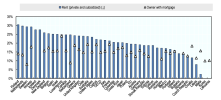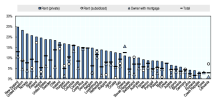A very large percentage of immigrant workers leave the UK later in their careers or at retirement age. Of my father's cohort of soldiers, only something like 8 or 9 out of a hundred or so have made their permanent home in the UK. The majority returned to the Caribbean when they reached 40+.Perfectly true, but immigrants get old and require care too, so we must find ways of dealing with these shortages without requiring an ever-increasing population (up by nearly 40% since WW2).
By the way, the UK population growth since WW2 (37%) has been well behind the global average (301%).
If you aren't going to engage in sensible, grown discourse...So your answer is to allow another 7 billion people to settle in the UK then is it?


